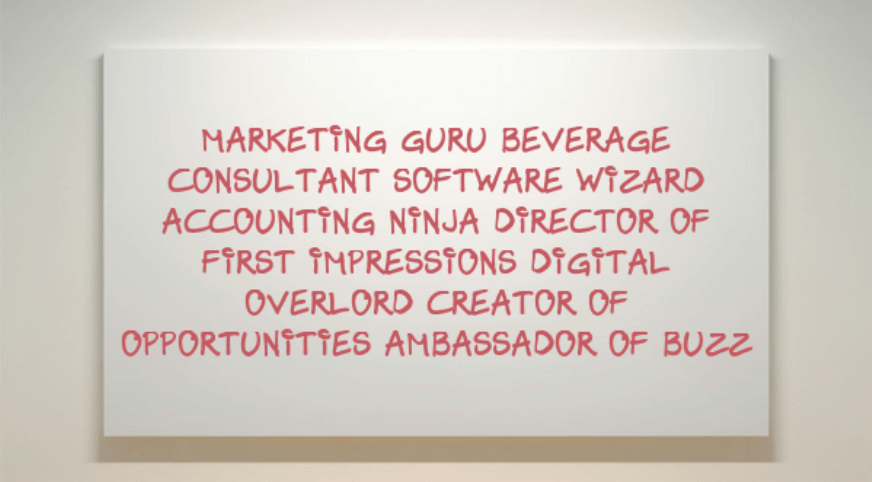Crazy job titles are, usually, quite amusing but relatively harmless. But does being a ‘marketing guru’, ‘beverage consultant’ or ‘software wizard’ when searching for a new job damage your chances? Will potential employers look beyond your wacky or funny title to appreciate the skills you can bring to their organisation and recognise your former achievements, or will your resume be promptly thrown on the rejects pile?
Do job titles still matter?
A job can be painfully dull, but a creative job title can make the role feel more important and interesting to carry out. More and more employers are jazzing up job titles to recruit, retain and even reward employees. Titles communicate powerful messages about the role and the organisation, although sometimes companies use impressive job titles to compensate for low salaries or other poor conditions.
But if you are job searching, can intriguing, frivolous or crazy job titles impress or put off future employers? Here are some things to consider when writing your resume.
Are crazy job titles common in your field?
If you’re wondering how to deal with an unusual job title on your resume, research the standards for your industry and the internal culture of potential employers. Including an unconventional job title on your resume may catch the attention of an HR manager if their organisation or industry sector embraces unique job titles, for example creative and IT fields.
Is your creative job title clever or confusing?
Some people think unconventional job titles will give them individuality and an edge over their competitors in the job market.
A recruiter looks at the average resume for no longer than 10 – 20 seconds, so interesting titles can capture the attention of someone seeing hundreds of resumes. But there’s a fine line between clever and confusing, which could rule you out of the running for a new position.
When a title isn’t clear it can be difficult for HR managers and recruiters to know what roles are comparable. Some titles are so ambiguous it can be hard to determine what the role actually involves. And a humorous job title that lacks substance can devalue a position if it doesn’t relate to an actual job description, diluting the impact of a role.
As a compromise, include the equivalent typical job title on your resume followed by the less common title in parenthesis. If you’re not sure what’s an equivalent role, ask an outplacement consultant or career coach for advice.
Listing standard job titles on a resume will also help if the company uses applicant screening software to scan applications. Searches might not include odd titles despite you having the right experience.
Does your role suffer from job title inflation?
An impressive job title can result in an employer assuming you are significantly more qualified than other candidates, or infer you have a high level of influence in the organisation. For example, one company I know calls its receptionist Senior Vice-President of First Impressions!
Resist the temptation to give the impression you have more experience than you actually do and clear up any confusion resulting from job title inflation. Emphasise what you do for your company, and not just what you are called.
Always be clear about what your job entails by using a career summary on your resume to help the reader understand what your responsibilities are. This will allow a potential employer to see exactly what you have to offer.
Be honest and show just how much your current or past company benefitted from your presence. Your contributions will shine on their own without needing crazy job titles or superlative descriptions.
What about titles from your past?
If you’re worried about including an exotic ‘legacy’ job title on your resume, contact a former manager to see if he or she will agree to you changing your title for the purpose of your job search. This is definitely worth doing because an organisation may contact them to verify the old position you list on a resume!
